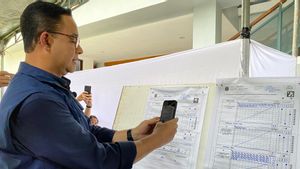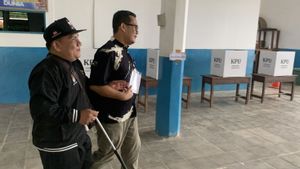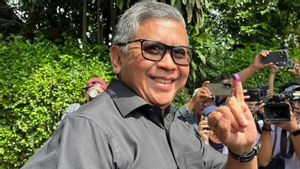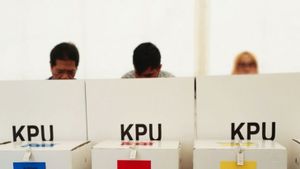JAKARTA - Employers have asked for relief from the government regarding the provision of holiday allowances (THR) to their employees. This is because the outbreak of the corona virus or COVID-19 has disrupted the national economic sector and businesses have suffered losses.
Chairman of the DPD HIPPI (Association of Indigenous Indonesian Entrepreneurs) of DKI Jakarta Province, Sarman Simanjorang, said that in less than two months, entrepreneurs must be faced with the obligation to provide THR.
"This kind of situation becomes a burden for entrepreneurs, especially SMEs and some labor-intensive industries," he said in a statement received by VOI, Thursday, March 26.
Sarman said that the turnover and profit of entrepreneurs had decreased drastically. Even so, the obligation to provide salary and THR is something that cannot be avoided.
As is known, the provision of THR is contained in Article 7 of the Republic of Indonesia Government Regulation Number 78 of 2015 concerning Wages (PP Wages) and Article 5 paragraph (4) Permenaker 6/2016 concerning Religious Holiday Allowances for Workers / Laborers in Companies. Which reads:
"This THR must be paid no later than seven days before religious holidays".
Meanwhile, Article 56 PP Wages and Article 10 Permenaker 6/2016 concerning Religious Holiday Allowances for Workers / Laborers in Companies regulates sanctions for employers who are late or do not pay THR. Reads:
"Employers who are late in paying THR to workers / laborers are subject to a fine of 5 percent (five percent) of the total THR that must be paid since the end of the Employer's obligation to pay (seven days before religious holidays). Imposing the fine does not eliminate the employer's obligation to pay. keep paying THR to workers / laborers ".
Article 11 paragraph (1) Permenaker 6/2016 reads:
"Employers who do not pay THR to Workers / Laborers are also subject to administrative sanctions".
Meanwhile, Article 59 paragraph (2) jo. Article 59 paragraph (1) letter a of Wage PP describes the sanctions, in the form of:
a. written warning;
b. restrictions on business activities;
c. temporary cessation of part or all of the means of production; and
d. Suspension of business.
"Workers or employees certainly expect THR to be fully accepted and that's something normal. But for business actors this is something not normal. Employers hope the government, in this case the Ministry of Manpower, can provide solutions in the form of special policies in order to reduce the burden on employers," said Sarman.
The Deputy Chairperson of the DPP Association of Indonesian Market Traders (APPSI) said that if business actors cannot provide THR at all or are only able to provide 50 percent, there must be an option. Is it possible to postpone it until the company's financial condition is adequate, which clearly does not eliminate the responsibility of business actors.
"This must be immediately evaluated or followed up by the Ministry of Manpower so that as early as possible bipartir negotiations can be held between representatives of workers and company management to find the best way," he said.
On the other hand, Sarman said, business actors also hope that workers through labor unions or trade unions can feel the pressure and burdens of employers in these conditions.
"Do not impose something that cannot be provided by entrepreneurs, which ultimately disturbs the harmonious industrial relations that have been going well so far," he explained.
Sarman said that business actors can survive until the storm of the COVID-19 outbreak has passed is something extraordinary. He hopes that this condition will quickly pass so that business and economic activities can recover.
The English, Chinese, Japanese, Arabic, and French versions are automatically generated by the AI. So there may still be inaccuracies in translating, please always see Indonesian as our main language. (system supported by DigitalSiber.id)













